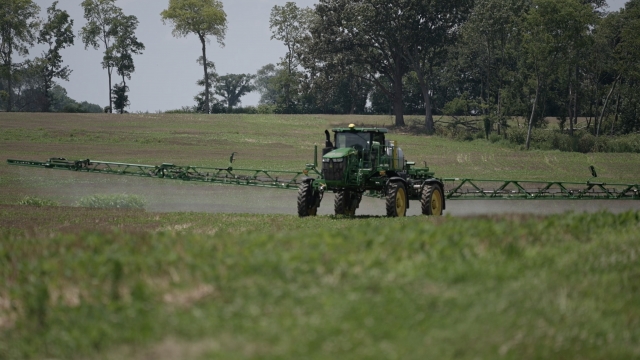As the number of farms across this country continues to steadily decline, there are efforts underway by the Biden administration and the USDA to encourage the next generation of American agriculture workers to enter the field.
John Ricketts is a third-generation farmer. He also oversees the Department of Agricultural and Environmental Sciences at Tennessee State University.
"We want to keep the farm, maintain the farm and have that for future generations," Ricketts said.
Having been around farming most of his life, Ricketts knows agriculture isn't necessarily the most diverse profession. Nor does it always appeal to young people. But there are efforts underway to change that.
SEE MORE: American farmers worry about the fate of a new farm bill
In June, the U.S. Department of Agriculture announced the launch of NextGen. The program is investing $262.6 million in higher education institutions to help foster the next generation of agricultural professionals across the U.S. and increase diversity in the field.
The list includes colleges in places like Alaska, California, Hawaii, Tennessee and Texas. Some are historically Black colleges and universities. Others are Hispanic-serving institutions and tribal-land grant institutions.
"We want diversity because we want to represent the entire population," said Manjit Misra, director of the National Institute of Food and Agriculture.
Meanwhile, the number of farms across the U.S. continues to decline. In 2007 the USDA estimated there were about 2.2 million farms in the country. That number is now closer to 2 million.
"More than 20,000 students will learn about agriculture and will help us fulfill the workforce gaps we have," said Carlos Ortiz, program leader at the NIFA.
He hopes removing the financial barriers for students who want to get into agriculture will help grow the industry.
"Having students from many backgrounds, many walks of life, many regions in the country to participate and contribute will help sustain our agricultural sector," Ortiz added.
Trending stories at Scrippsnews.com





